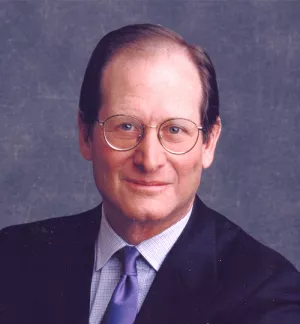Any discussion of what will happen with health reform going forward has to start with the current realities of policy and politics -- and the understanding that this isn't 1965. To begin
with:
The Obama administration and congressional leaders believe that by increasing coverage to more than 30 million Americans, without adding to the federal deficit, they will achieve a historic policy result.
The political credibility of the Obama administration depends on enactment of some bill that comes close to that goal of broad coverage increase at no-net federal cost. A failure injures or maims.
Unless the White House and congressional leadership get 218 votes in the House and 60 votes to stop a filibuster in the Senate -- poof, no health-care reform.
For those who come at health care from the policy perspective, comprehensive legislation has always been judged on the trinity of health-care reform issues: increased access, reduced cost, and enhanced quality. As health-care policy, the bill now likely to pass offers:
-- a plus on increased access
-- a question mark on increased quality (Will the millions of citizens with new coverage be well-served?); and
-- a negative on reducing the rate of increase in health care costs as a percent of GDP (even assuming it can be truly "revenue neutral" with respect to the federal budget). It is unclear what costs individuals and organizations will bear under the new plan.
But from a political perspective, the 434 members of the House and 100 members of the Senate are at the core of the debate. In case no one has noticed, we don't have a parliamentary democracy, with party discipline. In case anyone has forgotten, the famous 89th Congress elected in the 1964 election had 68 Democratic Senators and 295 Democratic Representatives: two-third majorities! Medicare passed in 1965 with 70 "yeas" in the Senate (57 Democrats and 13 Republicans) and 307 "yeas" in the House (237 Democrats and 70 Republicans).
Everyone standing outside the center of the process can advocate their position: the bill must have this or that. Everyone standing outside the center can say if the president and speaker and majority leader and committee chairs had any backbone, they wouldn't do the deals with
the powerful interests and abandon vital principles.
But the people at the center have to count -- and get -- the votes. And most members of Congress have strong views, whether those are principled views on some dimension of policy, political views dictated by voters in their home jurisdiction (or moneyed supporters of their campaign) or some combination of both.
One of the lessons of his first year in office is that President Obama's mandate for change was so vague (and so anti-Bush) that it doesn't transcend the self-interest of members of Congress as they cast their votes. At this point, the legislative process can look like the rug
bazaar in Marrakesh.
Once the administration and the congressional leaders have concluded that there is significant reform in the bills, whatever their failings (and however significant), there is only one task left until the signing ceremony: counting to 60 on Round 1 in the Senate and getting
the votes in Round 2 in both houses after the bill emerges from the conference committee. Leaders simply must find that difficult ground where a winning voting block can stand.
Although many voices will raise criticism along the way, we won't really know how to judge this health reform effort (if it passes) for some years. It will require some distance and a number of analysts and historians to determine whether the health-care hand was played
correctly by the president and the Congress. At what points in 2009 could they have acted differently to get a "better" bill? Or did they do a remarkable job to enact major health care legislation that had eluded the nation in the past, even with its flaws?
More importantly, we won't know for some years how the legislation will actually work. Although there have been some stories about purported "impact," very few have meticulous gone through all the steps required to implement "successfully" this huge piece of legislation. Those who want instant analysis and the gratification of certain judgment about the great health-care reform of 2009 (assuming the votes are ultimately there) will have to wait some time for good answers.
But that won't stop the cacophony of criticism that will attend the ugly end game.
Heineman, Ben. “The Ugly End-Game.” On Leadership at washingtonpost.com, November 11, 2009


